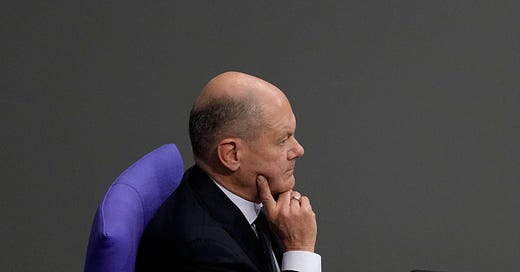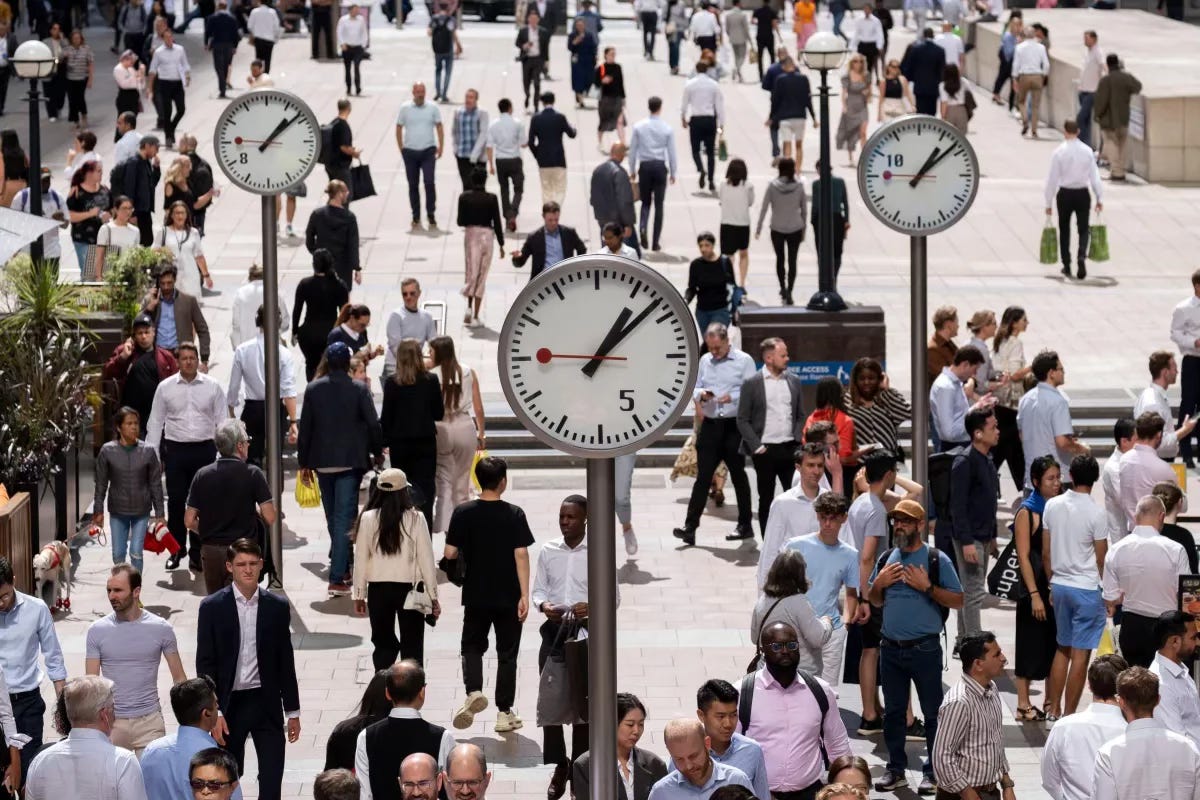Germany’s government has collapsed, after Chancellor Olaf Scholz lost a vote of confidence in parliament today, sparking an early election in February.
Scholz called the vote himself, despite expecting to lose it, seemingly deciding that an early election is better than the alternative: allowing his lame duck government to stagger on until September, reliant until then on the opposition conservatives to pass any new laws.
First, a quick recap of how Europe’s economic engine wound up in this mess.
Scholz has been leading a minority government since early November, when his traffic-light coalition - formed three years ago between his centre-left Social Democratic party, Lindner’s liberal Free Democrats and the Greens - fell apart.
Amid clashes over the 2025 Budget, the longstanding ideological differences over fiscal policy between coalition partners finally became too difficult to reconcile.
Scholz’s party and the Greens had wanted to suspend the constitutionally enshrined spending limit and take on more debt in order to bolster a Ukraine support package by €3 billion to €15 billion and to initiate a programme to save jobs in the car industry. But Scholz's own finance minister, Christian Lindner, a fiscal hawk who heads the business-friendly liberal Free Democratic party, refused to lend his support to new borrowing, instead calling for lower taxes and cuts in social spending.
Ever since the coalition collapse, opposition CDU leader, Friedrich Merz, who’s waited 25 years to become German chancellor, has been demanding a snap election.
On the economic front, the 69-year-old is largely aligned with Scholz’s dissenting ex-finance minister. He insists more debt would be a burden for younger generations and has pledged tax cuts.
As I wrote back in November, Merz made a logical case that, when there are such big decisions to be made in Europe right now, Berlin needs strong leadership and cannot afford to be in a political vacuum until scheduled elections in the Autumn. Amid the imminent return of Donald Trump to the Oval Office - and the accompanying challenges to Europe’s security and economic interests - his point resonates.
Less clear, however, is whether early elections will be a speedy resolution to political stability - or simply result in further deadlock.
German democracy, much like France’s, is being tested thanks to the rising popularity of hard-right parties, paired with the refusal of mainstream parties to co-operate with them.
At just 17 per cent, Scholz’s SDP is trailing the CDU in the polls by about 14 points, prompting speculation that Merz’s party is on course for a return to government.
But there is one big problem for Merz: the increasingly popular AfD will majorly hamper his mainstream conservative party’s chances of winning an outright majority.
The hard-right, anti-immigration AfD, once widely viewed as a party consisting of beyond-the-pale Nazi sympathizers, entered the Bundestag for the first time in 2017, winning 12.6%, and has now overtaken the SDP, polling at around 20 per cent.
Unless the AfD wins a shock outright majority, it won’t get into government - at least until other parties re-think their current refusal to form a coalition with it.
But it does look set to eat into the share of the vote that normally goes to Germany’s two big-tent parties that put forward chancellors.
If Merz comes out top in February’s elections, but the hard-right wins a fifth of seats in parliament, he could be tasked with a similar challenge to that of Scholz three years ago: bridging vast ideological differences to form an unnatural coalition that is considered doomed from the start.
Caitlin Allen
Deputy Editor
ON REACTION TODAY
Anthony Peters
Economic predictions for 2024
Ian Stewart
A Christmas reading list
ALSO KNOW
Chrystia Freeland resigns - Freeland, Canada’s deputy prime minister and minister of finance, has resigned amid growing tensions with the country’s prime minister, Justin Trudeau, over how to prepare for the coming trade war with a Donald Trump-led US administration. Trump pledged last month to slap a 25% levy on all Canadian goods and services when he returns to office.
The Archbishop of York under scrutiny - Stephen Cottrell is facing calls to resign over his handling of a sexual abuse case, days before he is due to take temporary charge of the Church of England. As Bishop of Chelmsford, Cottrell let priest David Tudor remain in post in the diocese despite knowing he had been barred by the Church from being alone with children and had paid compensation to a sexual abuse victim, a BBC investigation reveals.
Anonymity lifted for alleged Chinese spy - An alleged Chinese spy who the Duke of York was linked to has been named as Yang Tengbo. The businessman, who previously could be referred to only as H6, was banned from the UK in 2023 on national security grounds by a semi-secret national security court. Yang has released a statement, insisting he has done "nothing wrong or unlawful" and descriptions of him as an alleged spy were "entirely untrue".
Cyclone Chido - Rescuers are racing against time to reach survivors after the worst cyclone to hit Mayotte for 90 years laid waste to the French Indian Ocean territory’s many shantytowns. The authorities in Mayotte fear hundreds – possibly thousands have been killed.
FIVE THINGS
Curated by the Reaction Team - Caitlin Allen
It’s time to bet against American exceptionalism. Ruchir Sharma in The FT on how ‘the mother of all bubbles’ will pop.
Inside the drugs factory that brought Assad’s regime $5bn a year. Samer Al-Atrush in The Times.
Rishi Iyengar in Foreign Policy on Taiwanese soup dumplings as soft power.
With global free-traders on the back foot amid Donald Trump’s return, the U.K. is placing its bets on the Pacific, reports POLITICO.
The fate of the Austro-Hungarian nobility after the fall of the Habsburg Empire raises interesting questions about what “old” elites should do when politics changes, writes Anna Parker in EI.







